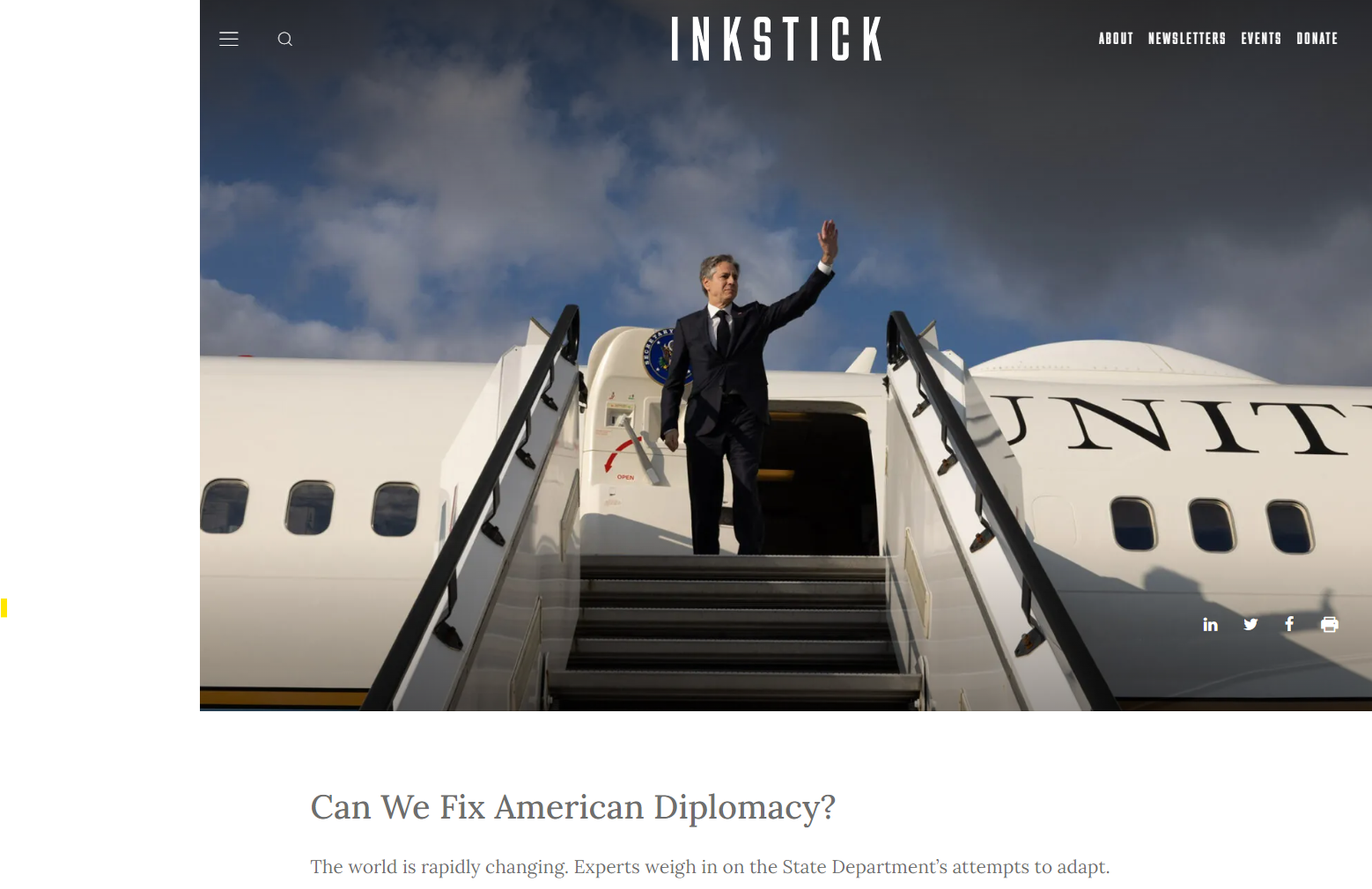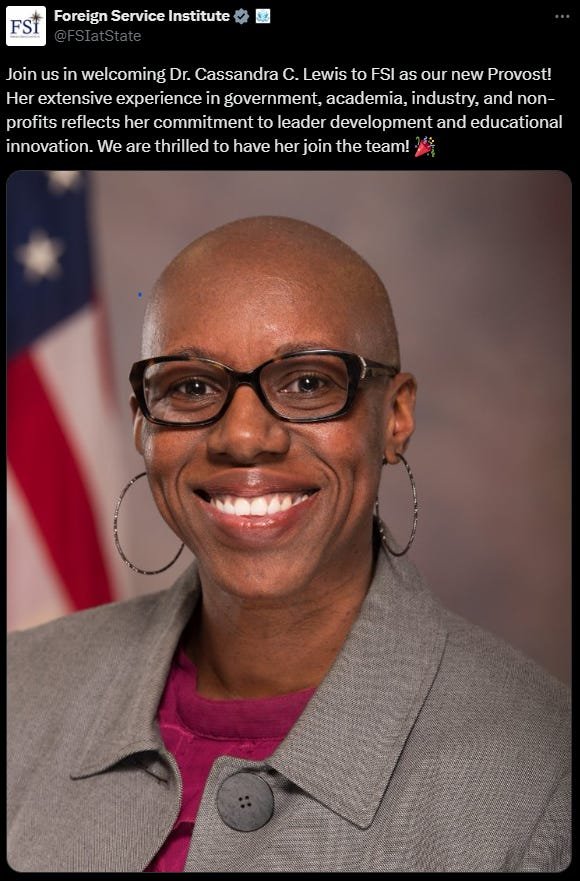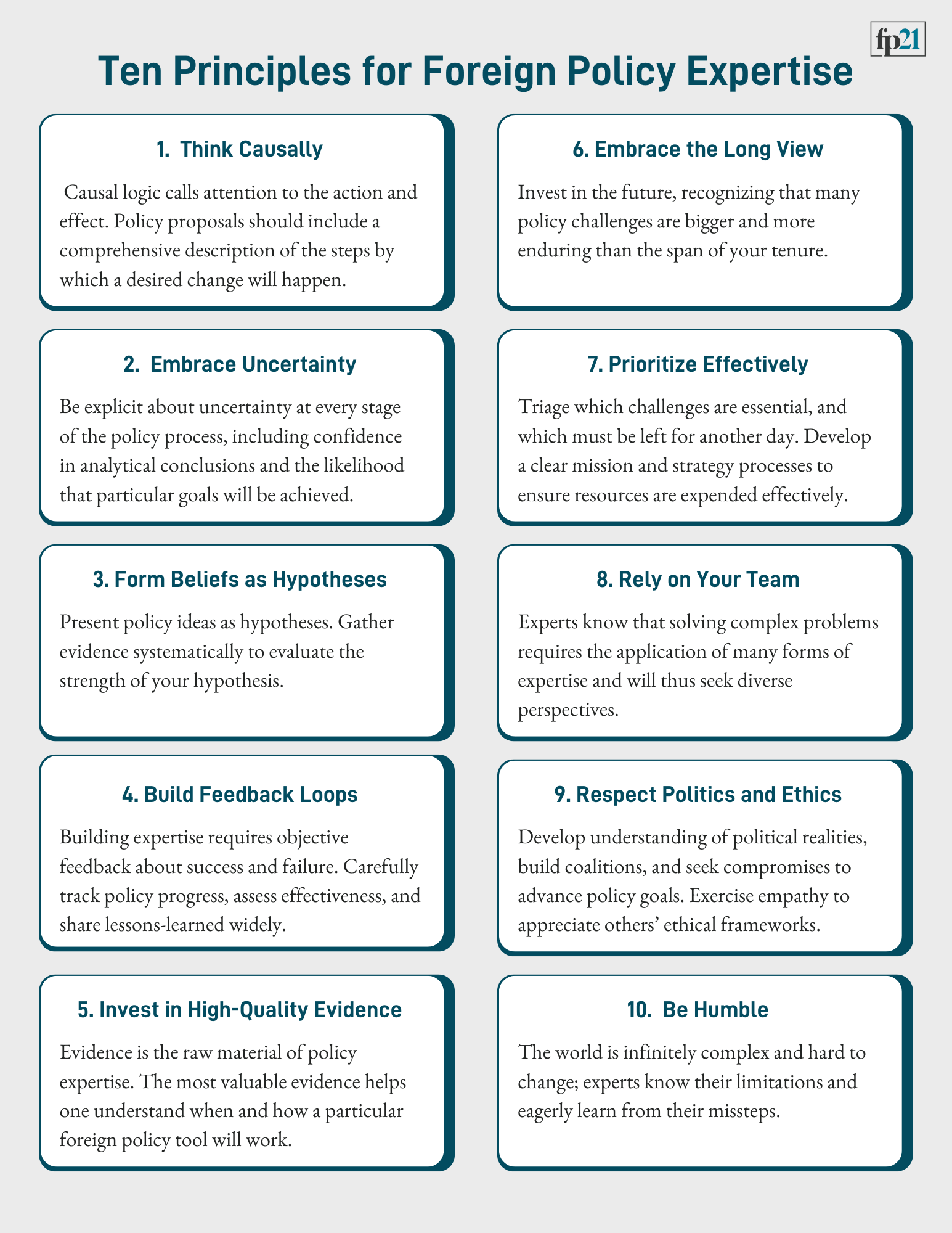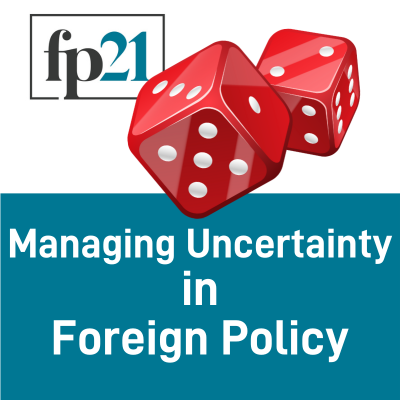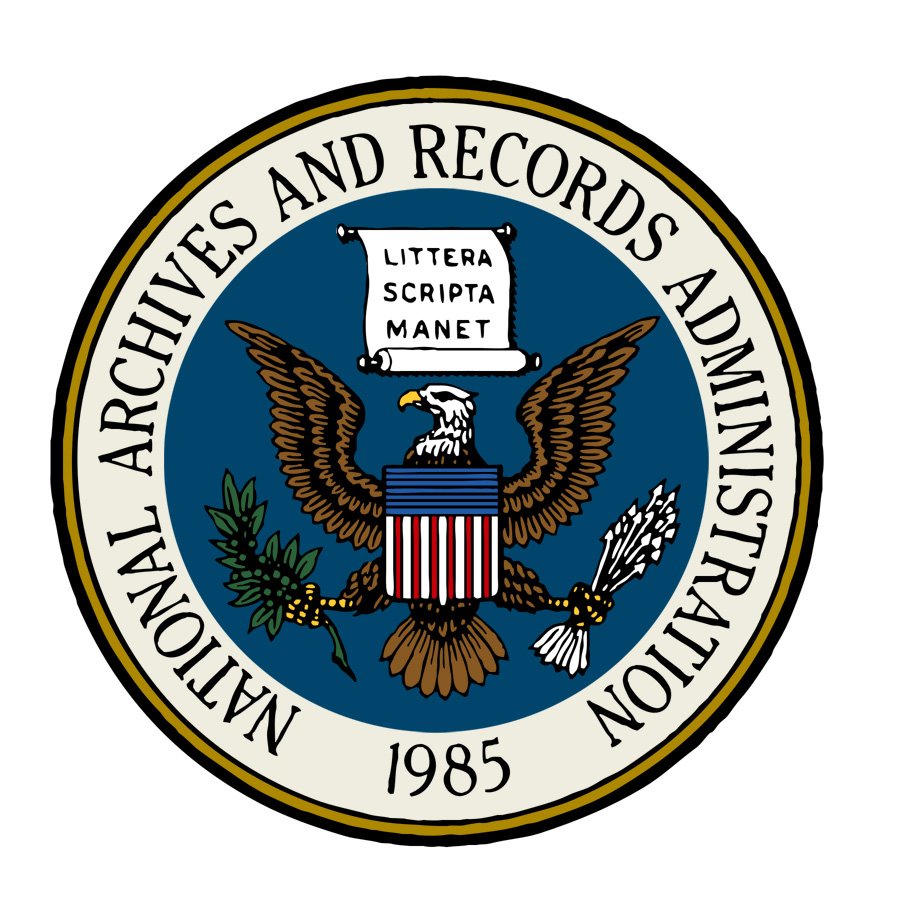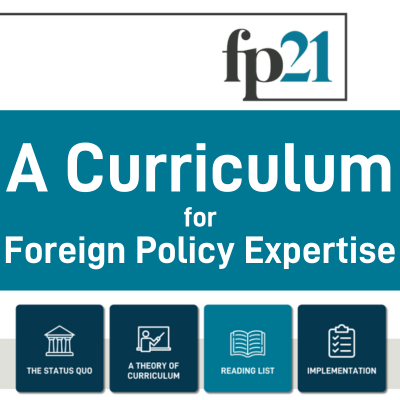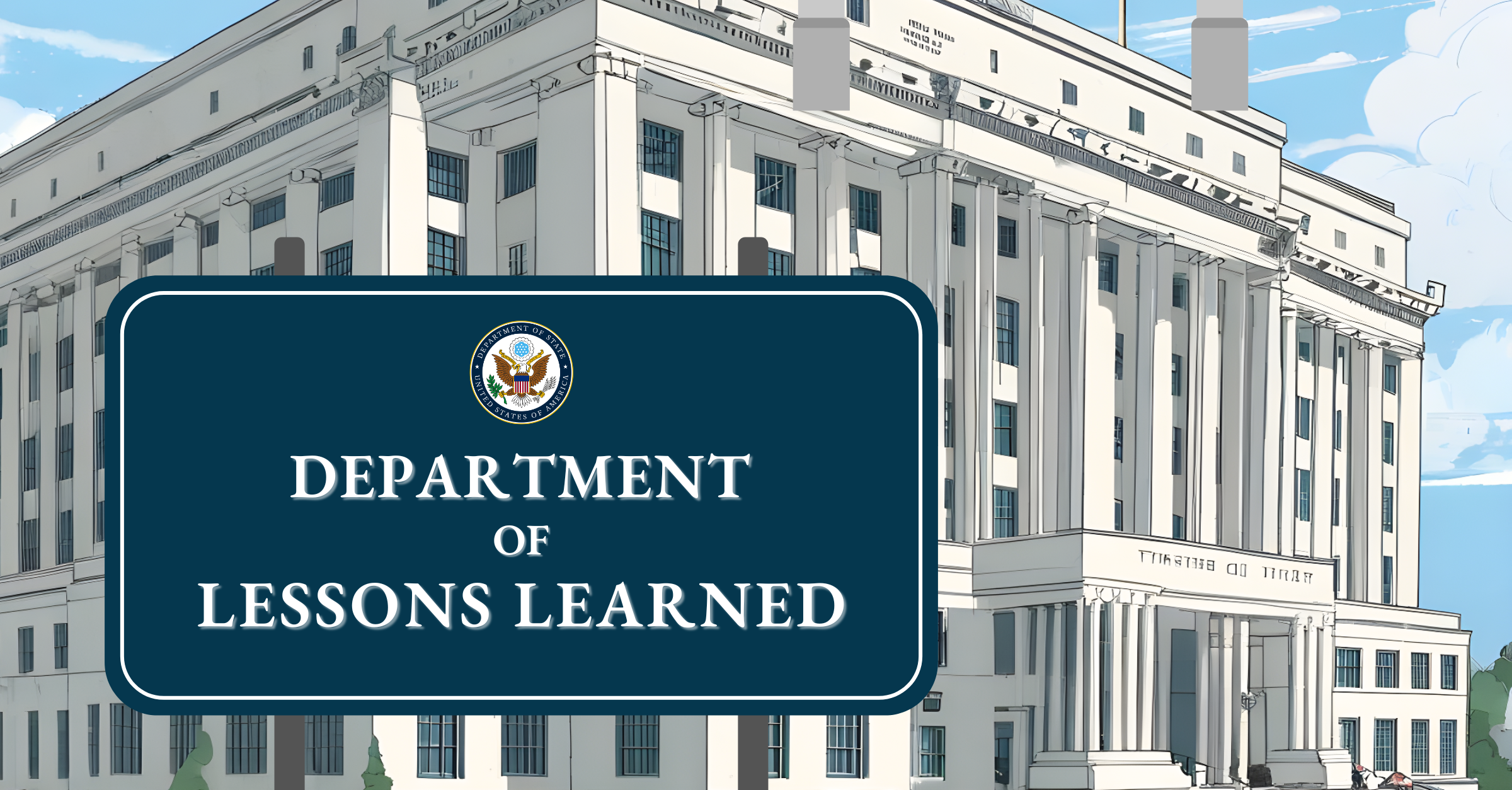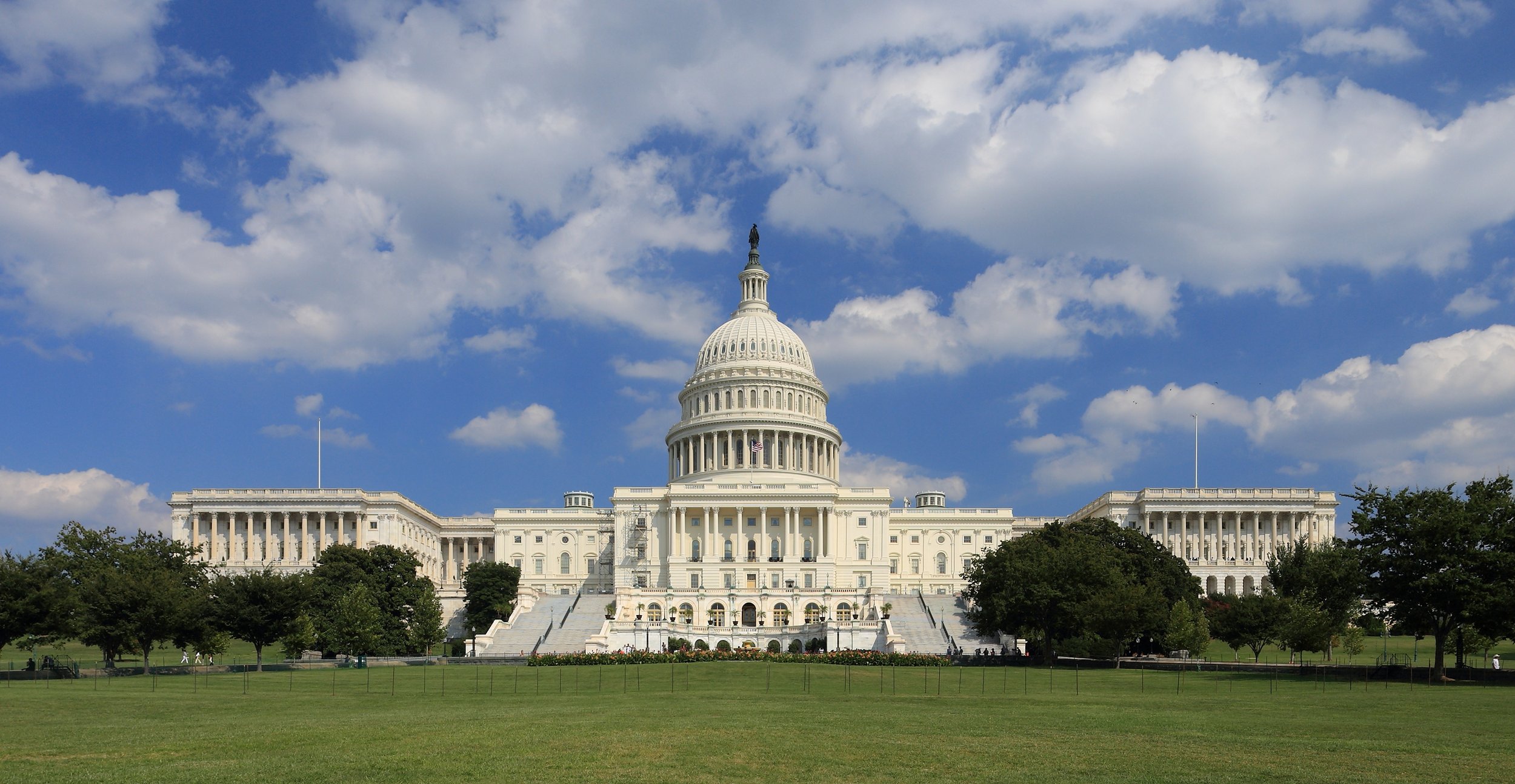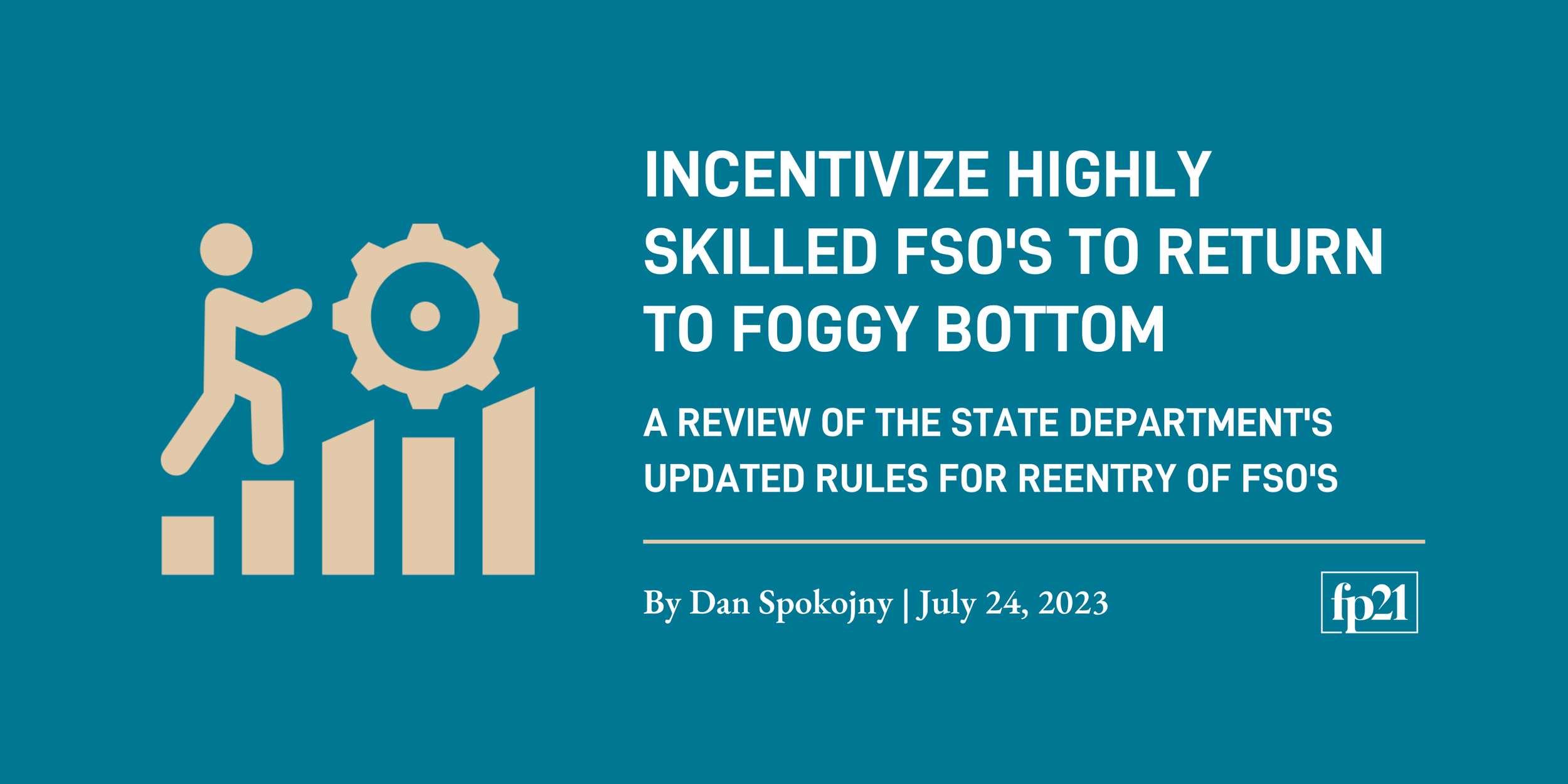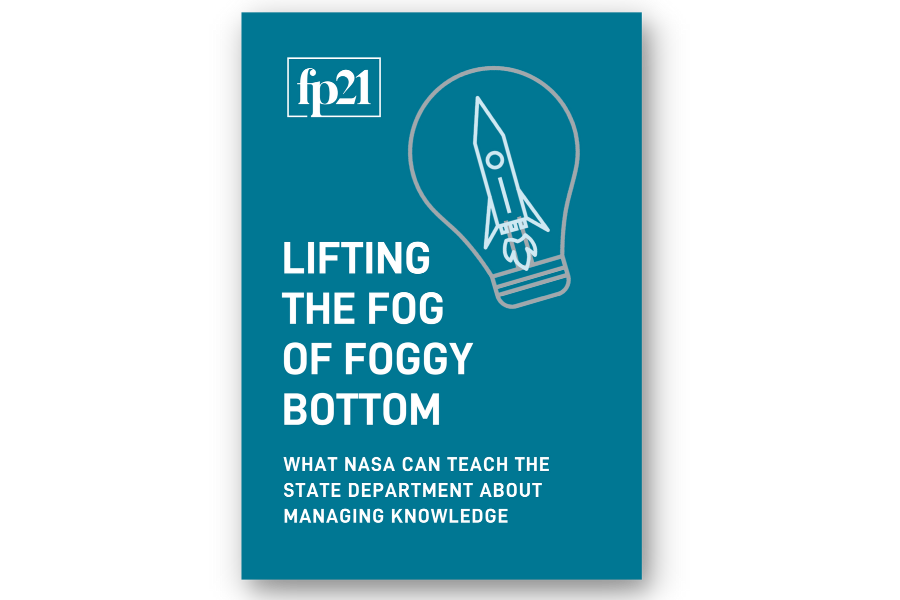Publications
fp21 is building a new culture of foreign policy. Explore our publications below.
Improving Risk Assessment Processes within the State Department: Lessons from Foreign Terrorist Organization Practices
Michael Becker: The process governing the Foreign Terrorist Organization (FTO) listing process contains a number of pathologies emblematic of broader challenges in the practice of American foreign policy. The current FTO process reflects outdated attitudes toward resource stewardship, deterrence, and risk assessment that pervade current American foreign policy.
Can We Fix American Diplomacy?
Dan Spokojny: The quality of our institutions’ policymaking processes — the ability to turn ideas into action — ought to be an essential concern for grand strategists. Upgrading the U.S. Department of State's decision-making process may be the most impactful intervention to strengthen our national security. This was the thesis for a talk and article offered to The Stimson Center's Reimagining Grand Strategy event in September.
Congressional Commission to Reform the State Department
The new Congressional Commission on Reform and Modernization of the Department of State represents a rare bipartisan consensus: the State Department remains an essential asset for U.S. national security but needs revitalization. This article proposes four questions the Commission needs to consider to set itself on a successful path.
Advice for the Inaugural Provost of the Foreign Service Institute
Dr. Cassandra C. Lewis has been appointed the inaugural Provost for the US Department of State’s Foreign Service Institute. The new Provost will oversee the curriculum used to train America's diplomats. This article offers suggestions for the new provost can make the most of this opportunity.
Ten Principles for Foreign Policy Expertise
Dan Spokojny: Guided by a theory of expertise, this articles offers ten principles that are central to the development and operationalization of expertise at the US State Department. They include embracing uncertainty, building feedback loops, investing in high quality evidence, relying on one's team, and more.
How to Embrace Uncertainty in Foreign Policy
Dan Spokojny: Managing uncertainty is a skill. It requires specialized techniques central to healthy decision-making. But when our policymakers ignore uncertainty in favor of instinct-driven assertions, they pass up opportunities to make it a little bit easier. Managing uncertainty should be a core skill for every aspiring foreign policy expert. This article is a primer on understanding how to manage uncertainty effectively.
State Department FFRDC: Public Comment for the Federal Register
Dan Spokojny: The May 17 announcement that the State Department will sponsor its first research and development center is “a huge win for diplomacy.” The State Department invited public comment about its proposal, so fp21 and our partners mobilized to respond and help push this proposal forward.
A Curriculum for Foreign Policy Expertise
Dan Spokojny: What training is required to become an expert in foreign policy Foreign policy is unique among fields of public policy in that there are no educational requirements, no body of tradecraft, and no standard training regimens to prepare its leaders. This article explores four categories of knowledge that all policymakers should know.
What is Expertise? Let's ask the experts.
Dan Spokojny: It's vital we build a strong foundation for understanding expertise in foreign policy. Let's examine scholarship from cognitive psychology, political science, and other fields of research.
Making “Lessons Learned” Stick
Dan Spokojny: How many wars could be prevented, and how many lives saved, if only we could inject better knowledge into the bloodstream of policymaking process? Here are five observations based upon my study of lessons learned programs.
Congress Passes State Department Authorization for Third Year in a Row
Dan Spokojny: The Department of State Authorization Act of 2024 was passed by Congress and signed into law, marking the third year in a row diplomacy gets a facelift. Legislators took aim at many of the issues fp21 has prioritized in recent years, continuing to press the State Department to modernize in the face of a rapidly changing international environment.
Teaching Data-Driven Decision-Making
Dan Spokojny: Last week Dan finished teaching a course on “Data-Driven Decision-Making” for a White House-led initiative called the U.S.-ASEAN Institute for Rising Leaders at the Johns Hopkins School of Advanced International Studies. The top-line argument for the course was to use the best available evidence to make the best possible decisions.
Incentivize Highly Skilled FSOs to Return to Foggy Bottom
Dan Spokojny: The State Department recently announced updated rules for the reentry of recently departed Foreign Service Officers. Many would jump at the chance to return to the Department if empowered to apply their new leadership, technical, and substantive skills. Greasing the skids for talented officers to return to Foggy Bottom would energize Secretary Blinken’s modernization agenda and set diplomacy on a better path into the future.
Forecasting in Policymaking: Beyond Cassandra
Dan Spokojny: All policy decisions are built on assumptions about the future. Yet many of the assumptions underlying policy pronouncements remain ambiguous and under-evaluated. Formalizing these assumptions can allow us to test the quality of our policy process and potentially improve its effectiveness. This post develops and evaluates four models for integrating forecasting methods into the policymaking process.
Lifting the Fog of Foggy Bottom: What NASA Can Teach the State Department about Managing Knowledge
This report explores how knowledge management can transform diplomacy. By prioritizing knowledge as its most important strategic resource, the State Department can make more effective policy, improve productivity, and build a learning-centric culture.
Congress Orders Changes for State Department in New Authorization
Dan Spokojny: The new State Department Authorization recently passed by Congress and signed into law by President Biden includes some meaningful changes for diplomacy and international relations. The legislation advances new authorities and requirements across training, workforce issues, hiring and promotions, and internal security issues. Let’s take a closer look:
Reflections on the American Diplomacy Project
Lindsey Michele and Dan Spokojny: When eight of the most experienced and accomplished diplomats alive write a report about how to revitalize the State Department, we must listen. Their work represents a coalescing and deepening of the recommendations from a number of the most influential State Department-focused institutions. Yet, we wonder: How can the authors both recommend that FSOs assume more authority and that State Department training is woefully inadequate?
The State Department’s New Strategy Prioritizes Evidence-Based DEIA
Rachel George and Beverli DeWalt: The State Department just announced its five-year strategic plan for Diversity, Equity, Inclusion, and Accessibility (DEIA). The strategy, led by the new Office of Diversity and Inclusion, commits to an evidence-based approach to diversity. This emphasis on evidence in the new strategy lays a necessary foundation for ensuring that diversity efforts have their intended effects, and, critically, that they do no harm.
The U.S. Should Practice What It Preaches on ‘Good Governance’
Rachel George: Washington’s emphasis on good governance in fragile states requires more attention to institutional modernization at home. The coronavirus pandemic and myriad new global challenges have highlighted the importance of addressing the fractures and failures within the U.S. agencies tasked with implementing US foreign policy. The disconnect between applying good-governance principles at home as cohesively as they are being promoted abroad is glaring given U.S. expertise on adaptive management in the effort to enhance global stability and resiliency.
Let's Get Serious about Research for Diplomacy: A proposal for a foreign policy-focused FFRDC
Dan Spokojny & Alexandra Blum: The Department of State has a knowledge problem. Few diplomats have the time or training to conduct serious research, nor is any office dedicated to answering central questions like, “When does U.S. diplomacy work?”. The State Department requires help answering such ambitious and vital questions. To fill this gap, we recommend State sponsor a new Federally Funded Research and Development Center (FFRDC) for U.S. foreign policy.



